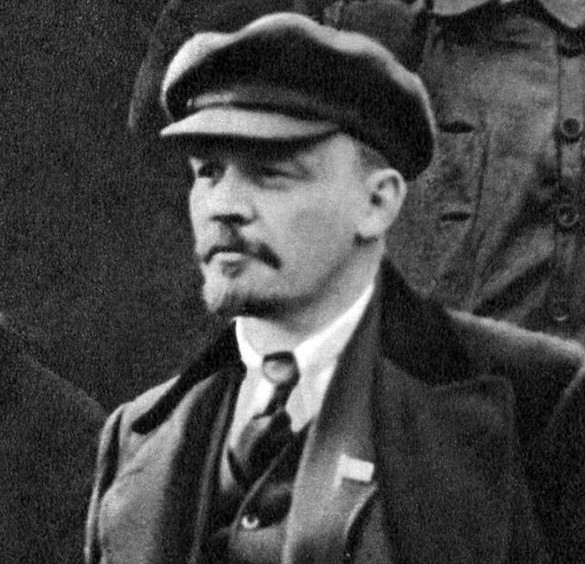A certainly infamous figure which is dreaded by most Marxists-Leninists, with good reason at least. However, one thing that the dialectical principle teaches us is that to overcome something, its useful, positive, or correct aspects must be preserved.
I became less and less against the historical figure of Trotsky, but I remain anti-Trotskyist, because there are a big difference between Trotsky and Trotskyism. What made me change my mind over time was realizing that I have actually never read anything by Trotsky, I still don’t know his biography, but it’s a fact that he was very relevant in the October Revolution.
After reading the first two chapters of The revolution betrayed, I noticed how Trotsky’s 1936 analysis on the relationship between the peasantry and the state industry under the NEP was correct up to the academic standards of E. H. Carr (1950–1978),[1] Charles Bettelheim (1978)[2] and R.W. Davies (1980)[3], using statistical data available at their time. I don’t know about Trotsky’s conclusion on the character of the Soviet state because I haven’t read his work in full.
Much like Stalin, Trotsky is a very contradictory figure, so it’s very hard to simplify them by picking a side and denying the usefulness of the other. It’s a dogmatic mentality that we should strive to avoid at all costs, because the truth is the whole, not the single perspective we pick. The intention of this post is a call for us to overcome these barriers that hamper our understanding of the past, and therefore, the present. I have noticed how many Marxists-Leninists are able to read works produced by bourgeois academics, yet preserve a hatred for certain figures (such as Trotsky, Bukharin, Khrushchev, etc.) so big that they cannot understand the historical place of them.
14 volumes of A history of Soviet Russia, published between the years of 1950 and 1978. ↩︎
Charles Bettelheim (1978). Class struggles in the USSR, second period: 1923–1930. New York: Monthly Review Press. ↩︎
R. W. Davies (1980). The socialist offensive: the collectivisation of Soviet agriculture, 1929–1930. The industrialisation of Soviet Russia, vol.1. Palgrave Macmillan ↩︎


Yet again, you completely misrepresent my points, but I digress. I also edited my previous comment to further respond to your previous statements.
It’s not that hatred and understanding are mutually exclusive. As I said:
I gave the emphasis on “so big” now so you can maybe understand my point. It’s not simply hatred, it’s the blind historical hatred that prevents one to dig deeper. Like Trotskyists hate Stalin so much they cannot see how much Trotsky was constantly an opportunist with frequent changing positions according to the political winds, without solid principles. They label Trotsky as a “real Leninist” not because of their study of Lenin, but based solely on their opposition to the historical figure of Stalin.
Did I mention it to excuse his actions whatsoever? You see how you twist it to mechanically make it appear one can only pick one side on Trotsky? Either he was an opportunist or he was a revolutionary. My point is that everyone is contradictory, every historical figure has contradictions along their lives. When I mention that Trotsky was a military leader of the October Revolution (which is a fact), you say I’m “excusing” his opportunism. Much like a Trotskyist would say I’m a Stalinist when I say that Stalin was a revolutionary leader of the USSR and not an autocratic bureaucrat. That’s exactly what I was saying at the beginning of the post, it’s a metaphysical dogmatism that prevents one from understanding the whole, the contradictions inherent of these historical figures, of historical movements and even the history of class struggle.
Like you said how every literature pre-(partial) opening of the archives is useless and “inferior work”, and one should actually read the primary sources. That’s not only a completely dogmatic statement but absolutely idealist, as if we have unrestricted access to the Soviet archives whenever we wish, and if the understanding of the Russian language is an ability every human on the planet is born with. The works I’ve mentioned use mostly Soviet historians as a source, and they had access to the Soviet archives nevertheless. For instance, here’s the bibliography of Charles Bettelheim’s Class struggles in the USSR:
If when one states historical facts you interpret it as picking a side, whether it’s about historical figures or class struggle in general, it shows a mistake on method nevertheless. I do not see history as history of individuals, I began focusing on individuals as a response to your initial comment, focused on Trotsky. I perhaps may have inadvertently made it look like I was “rehabilitating” Trotsky, although you were the only one who understood it that way so far, at least publicly in the comments.
Have a good day, comrade.